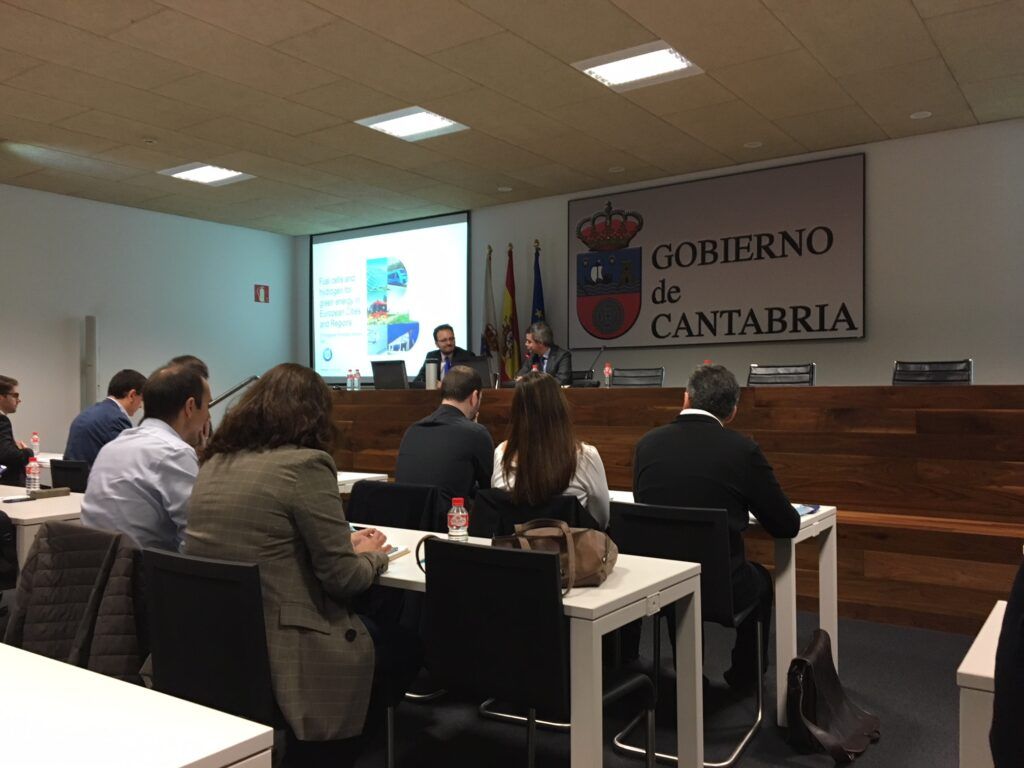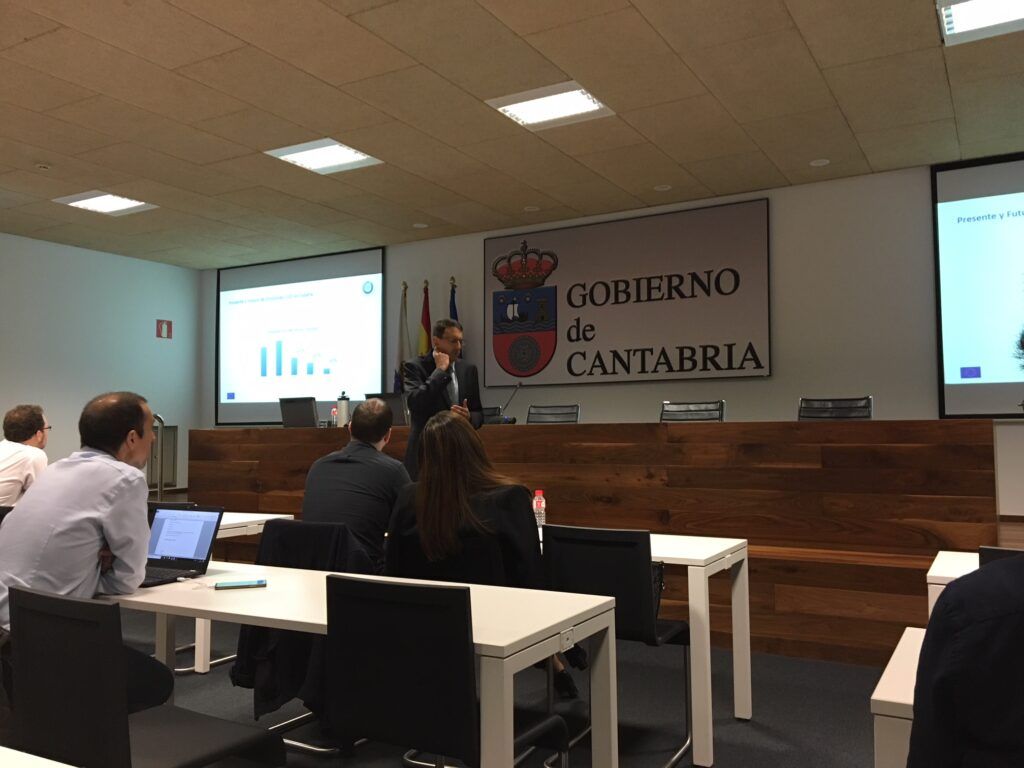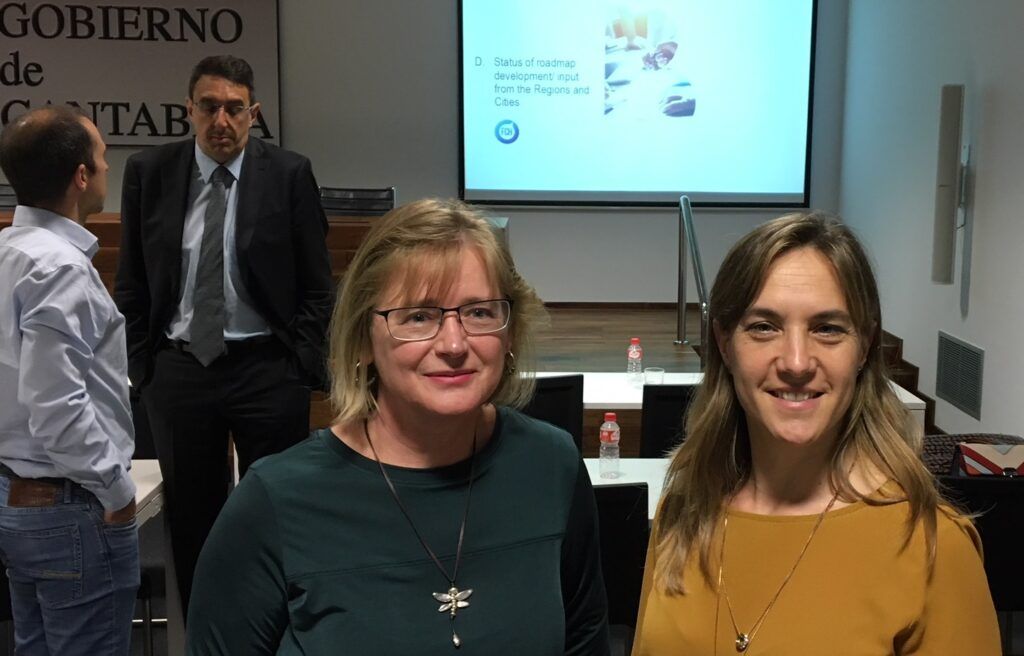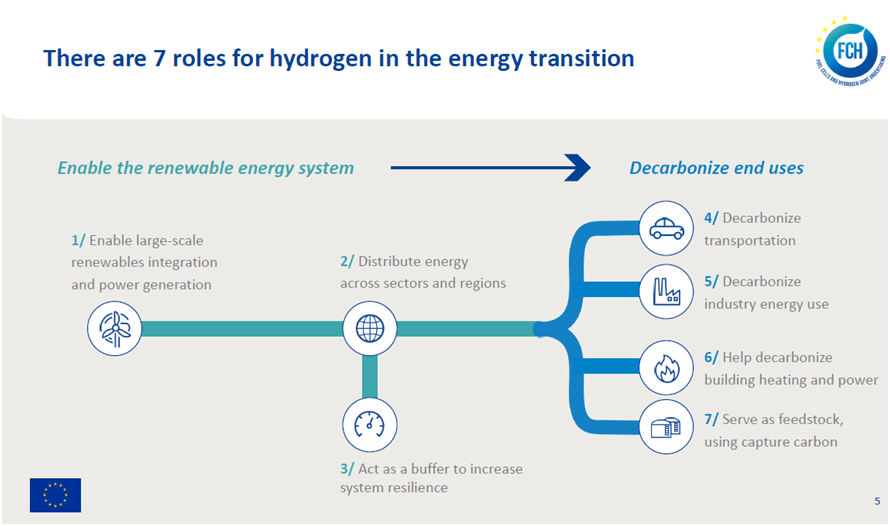The Regions & Cities initiative (http://www.fch.europa.eu/page/about-initiative) is conducting a second round of workshops across Europe. The workshops are aimed to promote knowledge exchange on best practices in FCH project development and to discuss the way followed by European cities and regions to implement FCH projects.
 Welcome and introduction to the workshop by Roland Berger team and Jorge Muyo from Government of Cantabria
Welcome and introduction to the workshop by Roland Berger team and Jorge Muyo from Government of Cantabria
After the successful first round of workshops with many interesting discussions and learnings, a second round has been conducted in various European cities in April 2018. This time, in Spain, it was held in Santander on April 24 at the Science and Technology Park of Cantabria. CIDAUT and Valladolid City Council attended the workshop as stakeholders of the initiative.
The meeting started with the welcome from Jorge Muyo, Director of Innovation, Technological Development and Industrial Entrepreneurship of the Goverment of Cantabria. It continued with the presentation of the main objectives by Roland Berger team, highlighting the exchange of experiences and lessons learnt on key topics in FCH projects under development. As experts in this type of projects, a review of best practices in implementing FCH projects was carried out. It was remark the importance of creating conducive framework conditions with soft measures and policies, scoping local FCH project concepts (key elements and success factors) and engaging local stakeholders with a proper management.
The workshop was attended by Carlos Navas as representative of the FCHJU who conducted a presentation on Hydrogen in Spain. He stressed that in order to achieve the CO2 emission reductions established in the 2040-2050 scenarios, decarbonisation measures necessarily pass through hydrogen technologies, especially in the transport and industry sectors. Taking into account the hydrogen economy: hydrogen allows more renewables in the energy system and enables sector-coupling. He highlighted the 7 roles for hydrogen in the energy transition.
 Carlos Navas FCH JU presentation
Carlos Navas FCH JU presentation
Then, the University of Cantabria made an exhibition of the most relevant European projects on hydrogen technologies that are ongoing, among which stand out HYLANTIC Project and PEMFC-Sudoe Network Project. The project bound4blue, in collaboration with the Government of Cantabria, was also presented.
The meeting continued with the review by Roland Berger team of the different approaches for funding of FCH projects. Several potential funding sources for FCH projects were checked such as R&I funding (Horizon 2020 through the FCH JU), Structural funds (European Regional Development Fund (ERDF) and Cohesion Fund (CF)), Thematic Platforms (CEF), Technical support instruments (ELENA), National/Regional funds and Soft Loans (European Investment Bank (EIB)).
To close the meeting, a discussion on the future needs of the Regions and Cities was established in order to overview the way ahead of the FCH Regions Initiative. Establishing contacts between regions with common interests, organizing meetings and visits to visualize and evaluate success implementation cases, as well as improving the knowledge of technologies by the public administration and general public were the most relevant issues that were put on the table.
Finally, to close the event, the participation of the attendants was appreciated and we were all invited to the last General Assembly of the Initiative that will be held in Brussels on May 18.
 Mª José Ruiz (Director of the Municipal Energy Agency of Valladolid) and Henar Olmedo (Cidaut Project Manager)
Mª José Ruiz (Director of the Municipal Energy Agency of Valladolid) and Henar Olmedo (Cidaut Project Manager)
